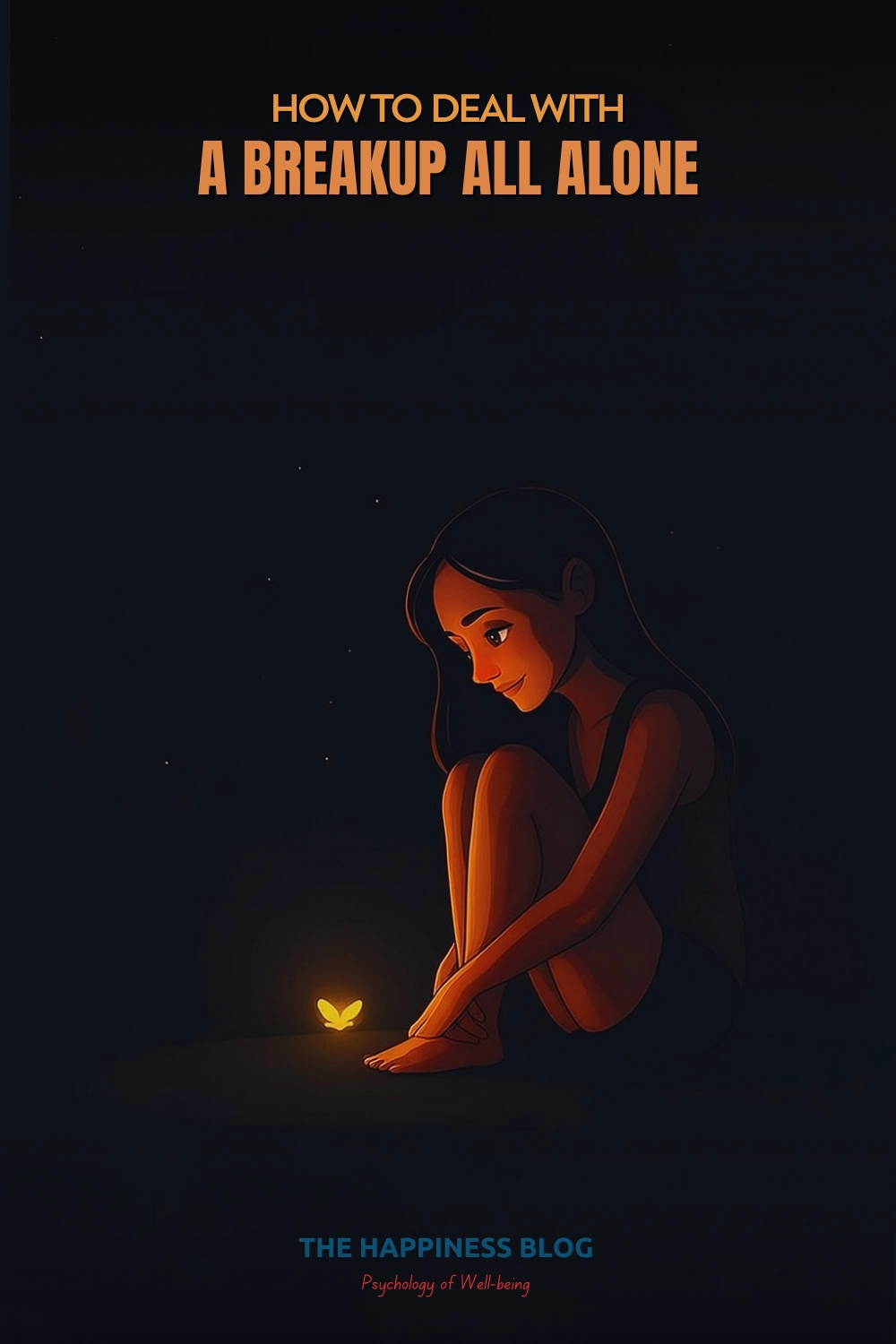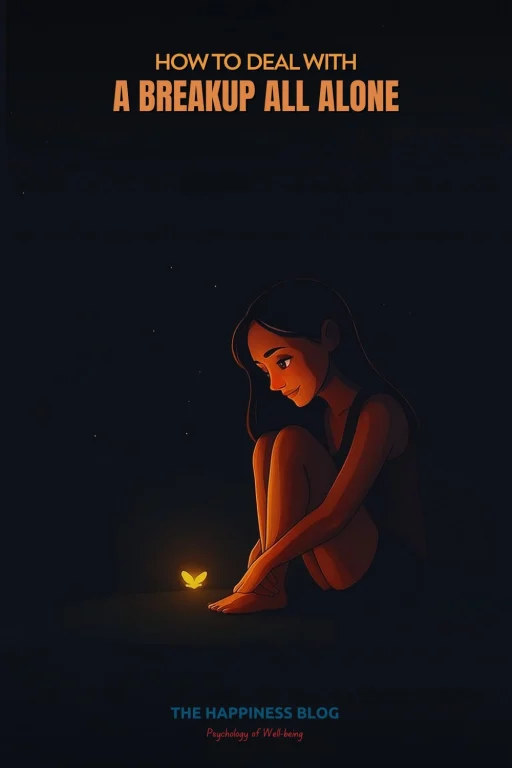Today's Sunday • 8 mins read
— By Dr. Sandip Roy.
Going through a breakup feels brutal when you’re alone. How do you heal by yourself?
Loneliness after a breakup is harsh. The silence often stings more than sadness. You miss their voice, their presence, the small routines that once filled your day.
You lose the rhythm of familiarity and wonder whether you wasted your love or whether that past will define you. It won’t.
A breakup takes away both the person and the habits you built around them.
Healing asks you to grow beyond the relationship and reshape the life that once revolved around it.
How To Heal From A Breakup When You’re Alone
There’s no perfect script for breakups. Each experience reshapes you differently. Still, two truths help you stay steady:
- First, realize that healing is nonlinear; some days will feel better, others worse, and that’s normal.
- Second, accept that loss changes you but does not erase your worth or your capacity to love again.
Here are some healthy ways to heal from a breakup on your own:
1. Spend Quiet Time In Nature.
Take a slow walk among the giant trees, especially as they are waking up in the mornings.
If you don’t have a forest nearby, a tree‑lined park will do. Large trees release phytoncides, organic compounds that calm the nervous system and boost immunity.
The Japanese call this shinrin‑yoku (forest‑bathing). Research proves its benefits:
- Shinrin yoku lowers cortisol, improves heart‑rate variability, and relaxes the body (Jin Park, 2010).
- Nature walks can reduce depression, anxiety, stress, and anger (Kotera & Lyons, 2020).
If you don’t feel like walking, sit quietly and let your senses take over. Smell the air, listen to leaves, watch shifting light.
Even a few minutes of stillness in nature can soothe loneliness and lift the gloom.

2. Move Your Body Daily.
Exercise is one of the fastest ways to lift your mood, but it’s also one of the hardest to start in a post-breakup stage.
Physical movement releases endorphins and reduces stress. It helps you think more clearly and make better decisions. One surprising benefit: exercise can also reduce your anger.
- Begin small. Stretch in bed. Do ten squats. Or wear your joggers and walk around the block.
- If the gym feels intimidating, dance to a playlist at home or follow a short YouTube routine.
- Start wherever you are. Even standing up from your chair and sitting back down counts.
The aim isn’t fitness perfection; it’s consistent daily movement to reclaim energy and confidence.
3. Plan A Solo Date To Enjoy Your Own Company.
A solo date teaches you to be comfortable alone and proud of it. You start remembering that your worth isn’t tied to being with someone.
A solo date affirms your love for yourself. It tells you that you can be a great friend and partner to yourself. Try simple plans first.
- Read at a café, go paragliding or rock climbing, or treat yourself to an exotic dinner.
- Be a tourist in your city, and go to your local museum or art gallery.
The “spotlight effect” may make you think people are watching you. They’re not. Most people are too absorbed in their own worlds.
Each solo outing reinforces your independence and quiets the urge to seek validation from others.
3. Write To Heal.
Writing helps untangle emotional chaos and gives structure to pain. Try any of these methods:
a. Self-Compassion Letter: Write to yourself as you would to a dear friend. Acknowledge the hurt, remind yourself that suffering is part of being human, and close with a few words of reassurance.
b. Expressive Writing: Spend 15–20 minutes writing freely about your breakup—what happened, what you feel, what you’ve learned. Don’t edit. Research shows this practice improves mood and physical health over time.
c. Gratitude Journal: List three things that went right today, no matter how small. Gratitude resets your brain’s attention from loss to life.
4. Practice Amor Fati, The Stoic Way of Acceptance.
Amor Fati is accepting what has happened and cherishing life, while still carrying out our responsibilities.
Amor fati means “love your fate.” It is the art of accepting what has happened and choosing to live fully, fulfilling our responsibilities despite it.
Acceptance means you stop fighting the past and start shaping the future. Amor fati allows you to accept your breakup willingly, so you’re free to move on.
Viktor Frankl said it best:
“You cannot control what happens to you, but you can always control what you will feel and do about it.”
When you practice amor fati, you stop asking “why me?” and start asking “what now?”

“Accept the things to which fate binds you, and love the people with whom fate brings you together, but do so with all your heart.” — Marcus Aurelius, Philosopher King
6. Allow Yourself To Feel Your Emotions.
Breakups flood out many negative emotions: sadness, loneliness, anger, regret, confusion, rumination, urges for revenge, or self‑neglect.
Don’t rush to “get over” any of it. Avoiding or suppressing emotions only delays healing.
Sit with your emotions. Notice what you feel with your full presence. Let yourself cry, rage, and grieve.
Emotional release is part of recovery, not weakness. When you give your feelings space, they lose intensity faster.
7. Take Care of Your Body And Space.
Basic self-care often collapses after a breakup.
Meals go skipped, clutter keeps piling up, sleepless nights happen in a row.
Bring order back, one small habit at a time. Cook something nourishing. Clean your room. Get sunlight. Go to bed earlier.
At the very least, eat one healthy meal, get seven hours of sleep, and keep good personal hygiene.
Physical stability rebuilds emotional balance.
8. Bring Joy Back in Small Doses.
Start doing things that used to bring you joy—even if they don’t feel joyful yet. The feeling returns after the doing.
Paint, garden, listen to podcasts, play with a pet, or join a new class. Re-engaging with hobbies reconnects you to life outside the relationship.
As you begin to feel lighter, practice forgiving. Forgiveness is a gift you give yourself.
It’s releasing the emotional hold it still has on you, freeing your energy for better things ahead.
If you can’t forgive completely, choose hollow forgiveness or silent forgiveness.
9. Give Yourself Time.
Breakup recovery isn’t linear. You’ll have good and bad days.
It’s normal to feel empty and restless on many days. Healing isn’t about forgetting; it’s about remembering without pain.
Be patient. Each day you show up for yourself is progress, even when it doesn’t feel that way.
Everyone’s timeline is different; respect your own pace and don’t rush the process.
Breakups are challenging. Take one day at a time, you will get through this.
10. Cut Contact With Your Ex.
Distance gives you the space to heal. Staying in touch keeps wounds fresh.
- Remove their information from your accounts.
- Unfollow or mute them on social media.
- Delete old messages and pictures.
- Avoid familiar meeting spots.
Don’t tell yourself that you’re being cold or unkind; you’re not.
You’re guarding your wound and allowing it to heal into a scar.
11. Stop Comparing Your Healing to Others.
It’s easy to fall into the trap of comparing your healing to others, especially your ex.
Everyone recovers at their own pace. Social media highlights people’s best moments, not their private breakdowns.
- Focus on your progress. Rebuild your life. Create new, positive experiences for yourself.
- Keep yourself purposefully busy with goals that bring meaning, not distraction.
12. Reach Out When You Need To.
Even if you’re physically alone, don’t isolate emotionally. Talk to a trusted friend, family member, or therapist. Being heard helps metabolize grief.
Don’t hesitate to reach out for support during this time. Seeking support isn’t a weakness; it’s wisdom.
Healing is faster when shared with those who care.
Remember, it’s okay to ask for help when you need it.
Final Words
Breakups hurt, whether they are amicable or toxic.
It can trigger withdrawal symptoms similar to addiction. You miss the dopamine highs of connection, the routine of affection.
The right things to do after a breakup are:
- Focus on one day at a time.
- Rebuild your routines and discipline.
- Allow yourself moments of joy without guilt.
The relationship may have ended, but your life hasn’t.
What comes next is your chance to rebuild, to keep space for falling in love again, starting with yourself.
• • •
√ Also Read: How To Overcome Loneliness After Being Alone For Long?
√ Please share this if you found it helpful.
» You deserve happiness! Choosing therapy could be your best decision.
...
• Disclosure: Buying via our links earns us a small commission.
